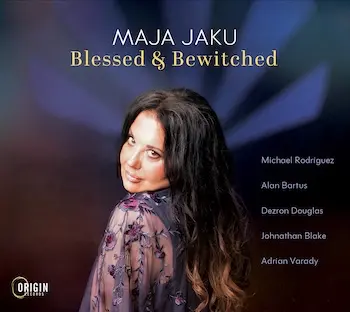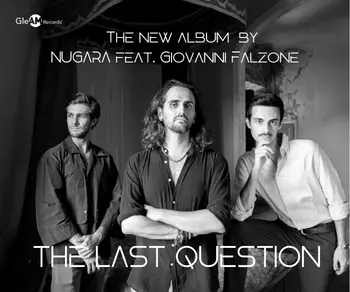Chris Cheek: Keepers Of The Eastern Door (Analog Tone Factory)
The inspiration for the title of saxophonist Chris Cheek’s latest album was the name the Mohawk tribe were afforded as the last bastions against the progressing incursions from America’s European settlers. As Cheek states in his sleeve notes, “I started thinking about Keepers Of The Eastern Door as a metaphor for people that try to preserve a way of life based on traditional values that are less materialistic and more respectful of our surroundings.” The album’s cover, “The Kutenai Duck Hunter,” an image by photographer and ethnologist Edward Curtis, can be seen as a symbolic representation of the Mohawk guardians, with the reflection of a canoe in the river, its occupants looking towards the horizon.
Cheek’s quartet comprises virtuoso guitarist Bill Frisell, whom the saxophonist first encountered whilst studying at Berklee College of Music and the line-up is completed by Tony Scherr on bass and Rudy Royston on drums, both of whom have frequently played in various Frisell line-ups. The album certainly exudes a sense of wistfulness and rumination with interpretive takes on pieces such as Henry Purcell’s 17th-century duet Lost Is My Quiet or the liturgical composition by Olivier Messiaen, O Sacrum Convivium! But some other tunes stand out as truly remarkable, memorable reinterpretations of old favourites. On the opening to Lane and Lerner’s timeless On A Clear Day, Frisell starts the tune in rock mode, akin to the feel of Hendrix’s crunchy fuzz-wah opening to Voodoo Chile. On Lennon and McCartney’s 1963 number-one chart hit From Me To You the guitarist’s instrument shimmers gorgeously. Three of the eight tracks presented here are Cheek originals including the lyrical title track with the two front-line instruments rallying melodies betwixt each other.
EH3 (Erland Helbo, Frode Berg & Eric Smith): Close To Nothing (Losen Records LOS3172)
Close To Nothing is EH3’s follow-up to their mid-Covid debut Improve Reality (Losen Records, 2020). The trio excel in highly accessible, high voltage jazz-rock which appears to glean its influences from a wide variety of sources. For example, the opening to Funk Haus resonates with Frank Zappa’s Tell Me You Love Me from Chunga’s Revenge (Bizarre/Reprise, 1970).
Guitarist Erland Helbo shows his impressive stylistic versatility from the off. With Frostbite he’s clearly channelling the likes of Mike Stern, Frank Gambale and Al Di Meola. Over the bass and drum funk anchored groove of Hurly Burly, adorned by an earwormy riff, all the trio’s members are showcased. Helbo releases a Holdsworthian torrent of notes in his solo, succeeded by Frode Ågedal Berg delivering a dynamic thumb-powered bass solo, this followed by Erik Smith’s flailing drum break.
There are two guest keyboardists on the album which helps to broaden-out the very tight and often frenetic arrangements. On 3rd Runway Blues, for example, Hammond organist Brynjulf Blix guests. Knut Løchsen plays synthesiser on the centrepiece A Moose In The Sunset and organ on Frostbite and the relatively laid-back Artemis 81 (The Pastor’s Son). The album was recorded in January 2025 in Jessheim, Norway.
Bennie Maupin: The Jewel In The Lotus (ECM 5892366)
Multi-reedsman and flautist Bennie Maupin is renowned for his contributions to pivotal recordings by both Miles Davis and Herbie Hancock – respectively Bitches Brew (Columbia, 1970) and Headhunters (Columbia, 1973). He played on several more significant Davis and Hancock records. But he was also a leader in his own right. Maupin, now in his eighties, released his debut album The Jewel In The Lotus on Manfred Eicher’s ECM label in 1974. This is the album’s first vinyl reissue since the 1970s (there was a repressing in 1977) and it comes complete with extensive new liner notes by Friedrich Kunzmann who sheds an essential spotlight on the background to the music.
From the opening track, Ensenada, there is a palpable similarity in ambience to very early Weather Report, before WR began to add more commercial, rock-like tunes to their repertoire. Maupin had played on Marion Brown’s album Afternoon Of A Georgia Faun (ECM, 1970) and Brown had introduced Maupin to Eicher, hence the obvious choice of label for Maupin’s first record under his own name.
Another key element to the album derived from the fact that both Brown and Maupin were introduced to Buddhism by bassist Buster Williams, who plays on the album. This sense of spirituality is tangibly evoked on the record by dint of its dreamy, meditative quality. This is even more obvious when Maupin is heard subtly chanting on Excursion.
Maupin selected a stellar cast for the record including his old boss Hancock on piano and electric piano, Billy Hart on drums and fellow Headhunter Bill Summers on percussion. The title track is worth the entrance fee alone, featuring resonant pizzicato and arco bass form Williams and Maupin on hypnotic soprano saxophone. Whilst the overall feel of the album is soundscapey, this does not diminish its importance in any way. With repeated plays the music on this sublime album opens up in a kaleidoscopic fashion, revealing ever-burgeoning colours and dimensions.
Andrew Moreno: Axiom (Honolulu Records)
Venezuela-born but Rotterdam-based guitarist Andrew Moreno releases his debut album Axiom on the independent Dutch label Honolulu Records and it’s an excellent one. There’s density and darkness but Moreno’s Netherlands-based quintet execute his complex compositions perfectly. As heard on the appropriately titled opener Oppa, the interplay between Moreno and the quintet’s two saxophonists Tineke Postma (alto, soprano) and Bo Van Der Werf (baritone) is critical and superbly arranged.
The album might, wrongly, be labelled as chamber jazz were it not for the visceral support of Jonathan Ho Chin Kiat on bass and Tristan Renfrow on drums, who propel the music along. Frenetic drums underpin Machine Girl and 2010 whilst Moreno’s idiosyncratically versatile guitar style makes for a focal point which is often impossible to overlook with its alternating light and shade and frequent surprising attacks. Sophisticated harmonies characterise numbers such as Umbrella whereas Matrix is underpinned by deep acoustic bass over which Moreno’s echo-infused guitar hovers.




